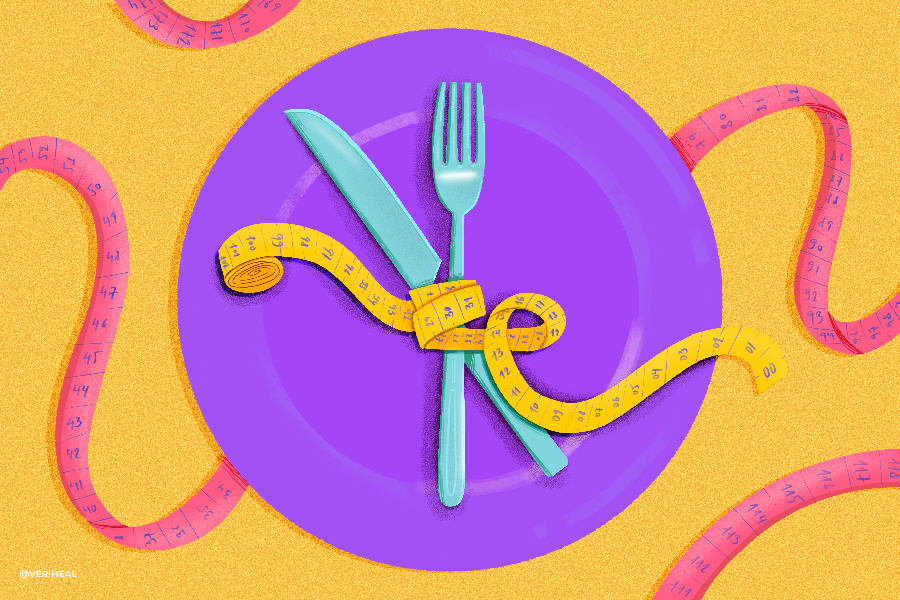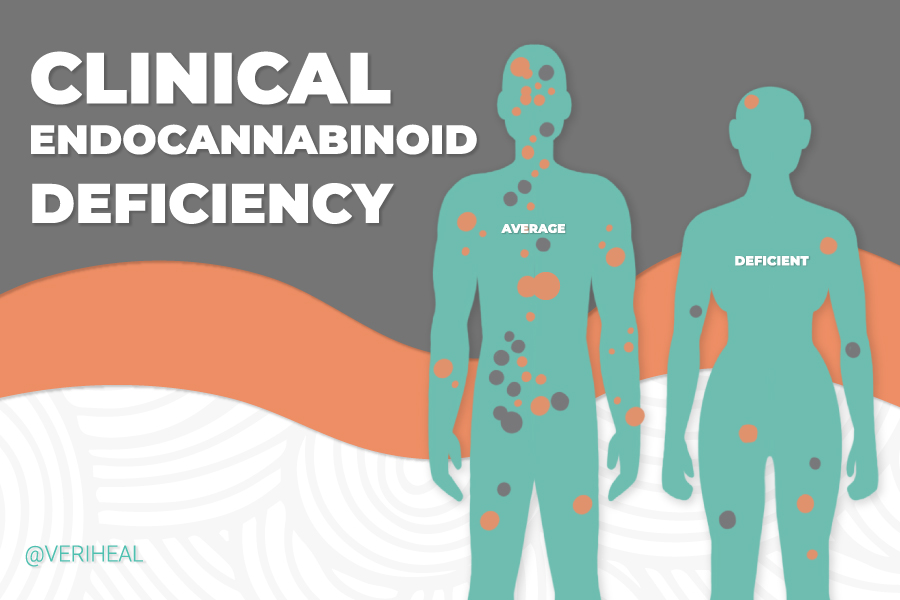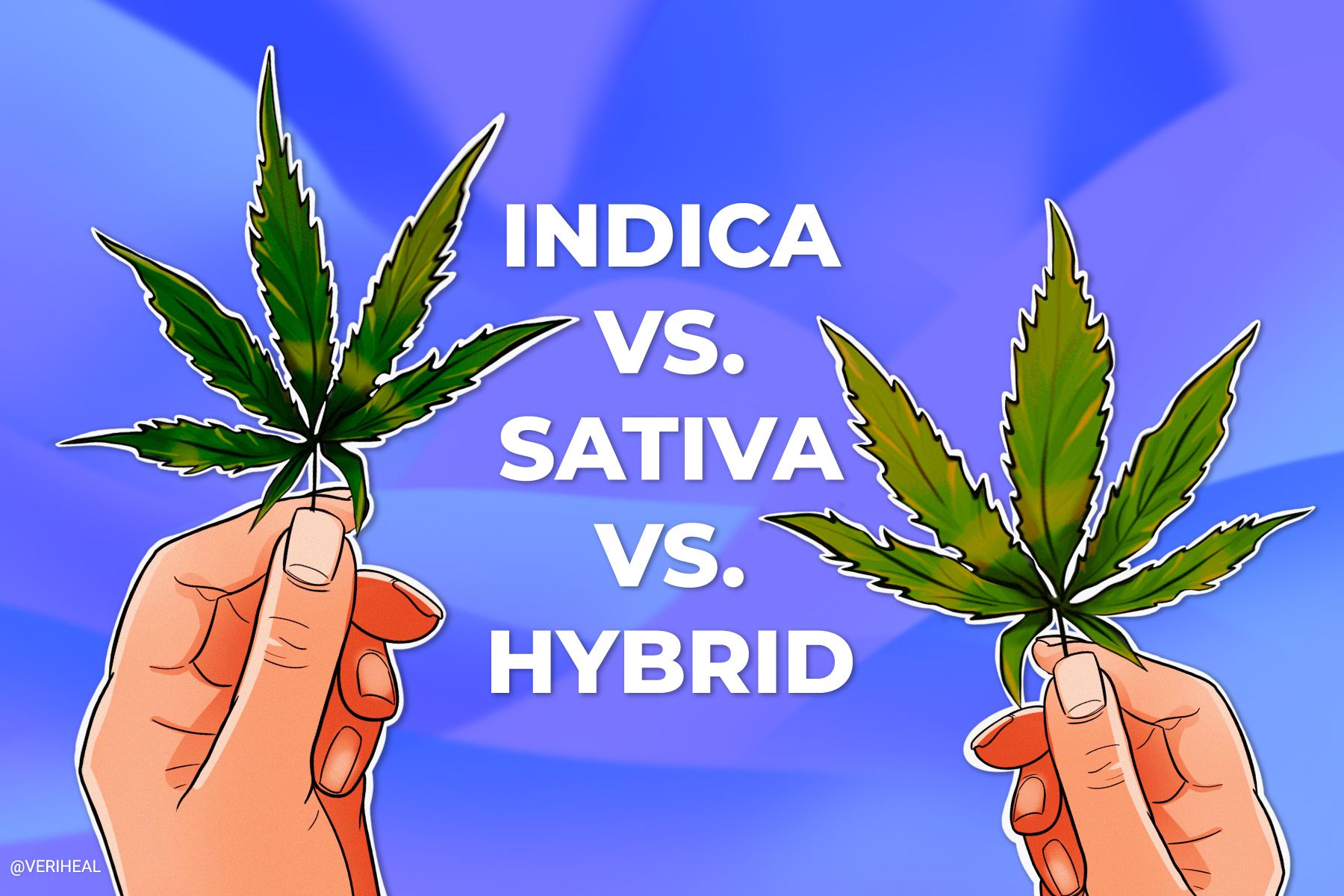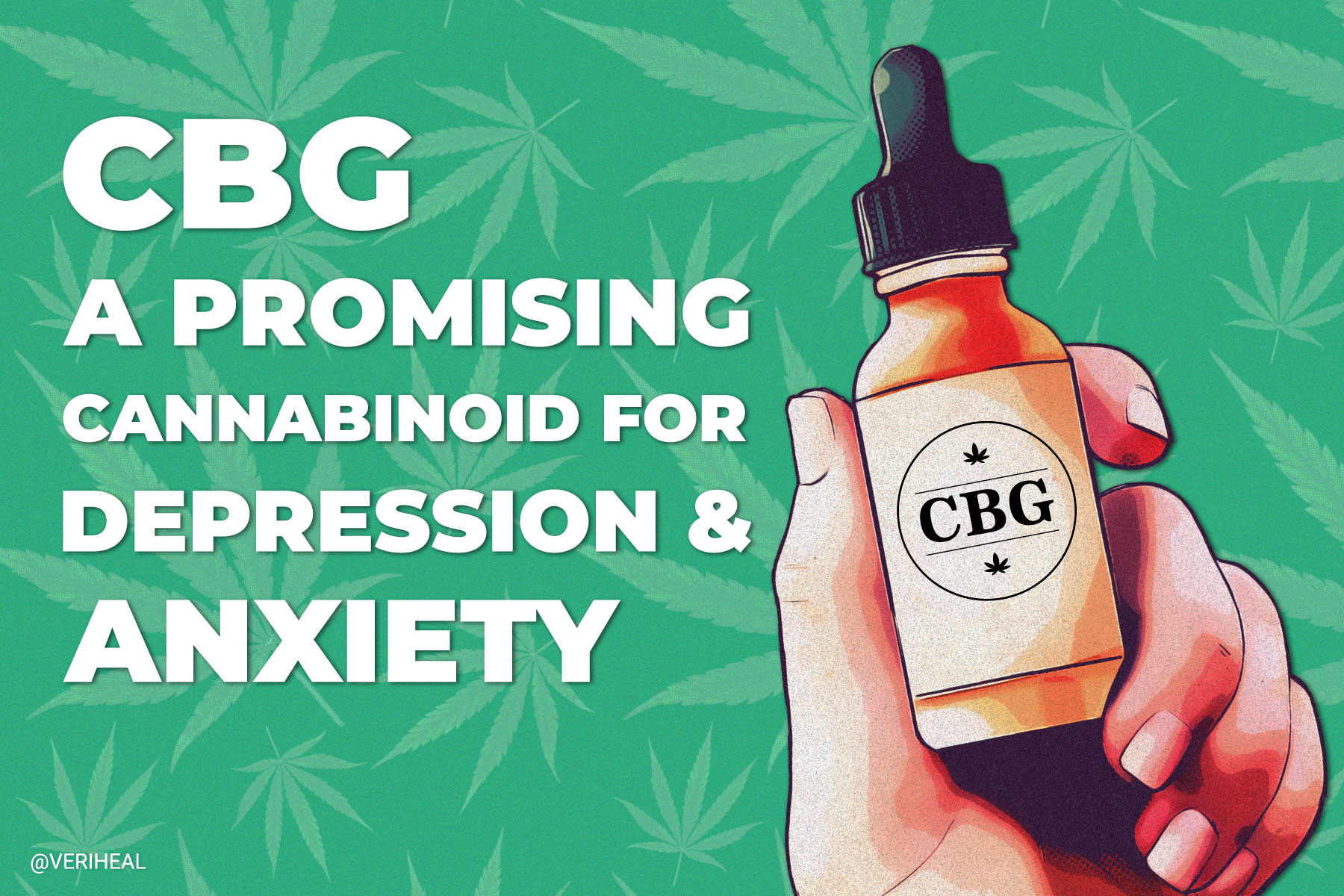The Benefits of Medical Marijuana for Anorexia Nervosa and Bulimia

Anorexia nervosa is a mental health condition that keeps patients from sustaining a healthy body weight due to extreme food restriction, a distorted body image, intense fear of weight gain, and severe body image control and coping issues. It is the least common of the three eating disorders—anorexia, bulimia and binge eating—yet it still manages to kill more people than all three, making it the most serious, according to American Addiction Centers (3).
Symptoms and Treatment for Anorexia Nervosa
Anorexia nervosa (AN) is a psychiatric disorder, classified as an eating disorder. Its exact cause remains unknown and there is a marked lack of effective treatment to mitigate symptoms. There are elements of biological, psychological, and environmental factors including genetics, trauma, culture, peer pressure, and emotional health.
Cannabis is well known for its orexigenic (appetite-stimulating) effect which can increase appetite and food intake, colloquially known as “the munchies.” This effect could prove beneficial in the treatment of anorexia patients but is yet to be confirmed by larger research in this specific population (13).
Anorexia Nervosa Symptoms
The National Institute of Mental Health lists short and long-term symptoms that result from anorexia. Short-term signs include restricted eating, emaciation, and distorted body image, while long-term symptoms show in thinning bones, short and fine hairs over the body, dry/yellow skin, anemia, heart and organ damage, and low blood pressure among other serious health effects. Anorexia can lead to hospitalization and be fatal if left untreated. Early detection and prompt treatment are important in preventing long-term complications.
Although binging and purging are typically associated with eating disorders such as bulimia, there is a subtype of anorexic patients that may also engage in purging activities. This binge-purge subtype includes abusing laxatives or diuretics, and/or self-inducing vomiting (6). Anorexic patients with a restricting subtype of anorexia severely restrict certain kinds of food and the level of food intake, and often couple these eating behaviors with excessive exercise to promote weight loss.
“This combination includes having specific genes, a person’s biology, body image and self-esteem, social experiences, family health history, and sometimes other mental health illnesses,” reports the division of the U.S. Department of Health and Human Services (2).
While men also experience mental illness and eating disorders, statistically, women are more likely to have anorexia nervosa. However, it should be noted that LGBTQ+ men in particular are at a greater risk of experiencing eating disorders than their straight counterparts (5). In the past, a diagnosis of anorexia required abnormal menstruation, but this has been removed in the new DSM-V in order to include biological men affected by anorexia.
Anorexia Nervosa Treatments
Treatment for anorexia is typically approached using a team of multidisciplinary medical professionals including doctors, dietitians, and mental health professionals who have experience in eating disorders. Often therapies involve a combination of different treatments including:
- Psychotherapy (CBT, or cognitive behavioral therapy)
- Nutrition education and restoring a healthy weight
- Medication (e.g. antidepressants to treat coexisting conditions)
- Hospitalization, medical care, and other programs
Medicinal treatment options for anorexic patients remain limited. Nevertheless, it is important to catch them early and refer them to appropriate and ongoing medical and psychological care. There is currently no existing medication that can cure anorexia. However, ongoing counseling, medical care, and certain medications like antidepressants that can treat comorbid conditions such as depression or anxiety, can help with symptomatic and weight management in the treatment of anorexia (11).
Family support is also critical and may play a significant role in the patient’s successful recovery as evidenced by research. Anorexic patients are also at higher risk for suicide so having a healthy support network is crucial (14).
Can Medical Marijuana Treat Anorexia Nervosa?
While traditional treatment has helped many anorexia patients make full recoveries, the paucity of effective medicinal treatments has spurred research into cannabinoids such as delta-9 tetrahydrocannabinol (THC) and cannabidiol (CBD) for anorexia treatment.
There have not been any randomized controlled trials conducted studying the effect of plant-derived (non-synthetic) cannabis on appetite and weight with weight as the primary endpoint. This is, in part, due to existing federal regulatory obstacles to investigating the potential therapeutic benefit of the cannabis plant.
Cannabis is well known for acting as an appetite stimulant and therefore may prove to be an effective treatment for eating disorders such as anorexia. However, further research in the anorexia population and cannabis’ effects on weight, depression, and anxiety are needed to understand its impacts.
A 2014 randomized controlled trial that studied the use of Dronabinol in severe, enduring anorexia nervosa patients found that, “(Dronabinol) therapy was well tolerated. During four weeks of exposure, it induced a small but significant weight gain in the absence of severe adverse events (1).” Dronabinol is a lab-made form of THC that is already FDA approved to treat loss of appetite and weight loss in people who have acquired immunodeficiency syndrome (AIDS). Such positive results indicate there is good reason to study cannabis’ effects and possible benefits for people with anorexia.
The ECS and Eating Disorders: What Do We Know?
The endocannabinoid system (ECS) is an extensive and complex cell-signaling system found throughout the body. Its function is to support homeostasis in the body through giving and receiving feedback to cells that help regulate key bodily functions such as mood, temperature, immune response, appetite and digestion, metabolism, stress and many other essential functions.
A 2011 Biological Psychiatry study “Brain Type 1 Cannabinoid Receptor Availability in Patients with Anorexia and Bulimia Nervosa,” suggests the endocannabinoid system links to eating disorders (8). This study showed that CB1 receptors are increased in these patients in order to try to possibly compensate for an underactive ECS.
Six years later, a 2017 Disease and Disorders research report stated that “the endocannabinoid system plays an important role in the control of eating behavior by acting via central (brain) and peripheral (gut, liver, muscle and fat) mechanisms (12).”
MMJ and Depression: Eating Disorders and Comorbid Conditions
Aside from scientific evidence connecting the endocannabinoid system to eating disorders, anorexic symptoms and comorbid conditions such as anxiety and depression could potentially be treated with CBD and THC. Starvation inevitably causes depression, along with malnutrition where the body is not getting the needed vitamins and minerals to sustain itself. Medical cannabis reportedly may assist in depression, which could also help anorexics begin to feel better in early recovery.
When it comes to the medicinal benefits of different cannabis strains to treat specific conditions, whether a cannabis product is a sativa-dominant or indica-dominant strain is of far less importance than its terpene and cannabinoid profile. According to a review of the research into prospects for the use of cannabinoids in psychiatric disorders, “The reactions may depend on the patient’s ECS activity, the proportion of phytocannabinoids, the terpenoid composition, and the dose used. The interaction between these effects can be complex, and therefore requires selecting the appropriate variety and dose by an experienced professional (7).”
Preliminary research on the effects of different cannabis terpenes and mice shows us promising results when it comes to the treatment of depression and anxiety. Linalool, a terpene often found in cannabis as well as other plants such as lavender, has been found to have antidepressant effects. It works through activating neurotransmitter receptors in the brain via the ECS, ultimately impacting serotonin levels in the brain.
Although most of the available research on depression and medical cannabis has been done using animal models, there have been some small observational studies on humans more recently that have produced promising results (9).
Results from a 2017 study that explored the impacts of THC on the psychological symptoms of anorexia nervosa concluded that, “Significant improvements were found in self-reported body care, sense of ineffectiveness, asceticism and depression. There were no significant changes in BMI (4).”
Further research on the benefits and long-term effects of cannabis use and terpenes on depression is needed.
Medical Cannabis and Anxiety: Eating Disorders and Comorbid Conditions
Anxiety is another condition that often accompanies anorexia. Treating anorexia nervosa is intimately related to also treating coexisting or comorbid conditions such as anxiety and depression.
The anxiolytic (anxiety-reducing) effects of CBD have been assessed in animal models and in humans. “CBD’s positive anxiolytic effects have been observed in people with generalized social anxiety disorder (SAD) and effectively treat other anxiety disorders and reduce anxiety symptoms (7).”
According to a 2021 observational trial exploring the antidepressant and anxiolytic qualities of cannabis, “Medicinal cannabis use may reduce anxiety and depressive symptoms in clinically anxious and depressed populations (10).”
Research on medical cannabis and anxiety is still in its infancy. Therefore, “future placebo-controlled studies are necessary to replicate these findings and to determine the route of administration, dose, and product formulation characteristics to optimize clinical outcomes (10).”
If you or a loved one is living with anorexia nervosa, talk to a medical professional about medical cannabis to see if it could be a good fit for your eating disorder treatment plan.
Talk to your doctor and learn more about getting your medical marijuana card today.
Note: The content on this page is for informational purposes only and is not intended to be professional medical advice. Do not attempt to self-diagnose or prescribe treatment based on the information provided. Always consult a physician before making any decision on the treatment of a medical condition.
1. Andries, A., Frystyk, J., Flyvbjerg, A., & Støving, R. K. (2013). Dronabinol in severe, enduring anorexia nervosa: A randomized controlled trial. International Journal of Eating Disorders, 47(1), 18–23. https://pubmed.ncbi.nlm.nih.gov/24105610/
2. Anorexia nervosa. Anorexia nervosa | Office on Women’s Health. (2022). Retrieved June 8, 2022, from https://www.womenshealth.gov/mental-health/mental-health-conditions/eating-disorders/anorexia-nervosa
3. Authored by Editorial StaffLast Updated: July 26, 2021. (2021, July 26). Anorexia statistics & facts. American Addiction Centers. Retrieved June 8, 2022, from https://americanaddictioncenters.org/anorexia-treatment/facts-statistics
4. Avraham, Y., Latzer, Y., Hasid, D., & Berry, E. M. (2017). The Impact of Δ9-THC on the Psychological Symptoms of Anorexia Nervosa: A Pilot Study. Israel journal of psychiatry, 54(3), 44–51. https://pubmed.ncbi.nlm.nih.gov/29735812/
5. Columbia University’s Mailman School of Public Health. (2007, April 14). Gay Men Have Higher Prevalence Of Eating Disorders. ScienceDaily. Retrieved June 7, 2022 from www.sciencedaily.com/releases/2007/04/070413160923.htm
6. EDRS, T. (2022, April 8). The binge purge subtype of anorexia. Eating Disorder Recovery Specialists. Retrieved June 8, 2022, from https://www.eatingdisorderspecialists.com/the-binge-purge-subtype-of-anorexia/
7. Graczyk, M., Łukowicz, M., & Dzierzanowski, T. (2021). Prospects for the use of cannabinoids in psychiatric disorders. Frontiers in Psychiatry, 12. https://www.frontiersin.org/articles/10.3389/fpsyt.2021.620073/full
8. Gérard, N., Pieters, G., Goffin, K., Bormans, G., & Van Laere, K. (2011). Brain type 1 cannabinoid receptor availability in patients with anorexia and bulimia nervosa. Biological Psychiatry, 70(8), 777–784. https://pubmed.ncbi.nlm.nih.gov/21718968/
9. Li, X., Diviant, J. P., Stith, S. S., Brockelman, F., Keeling, K., Hall, B., & Vigil, J. M. (2020). The Effectiveness of Cannabis Flower for Immediate Relief from Symptoms of Depression. The Yale journal of biology and medicine, 93(2), 251–264. https://www.ncbi.nlm.nih.gov/pmc/articles/PMC7309674/
10. Martin, E. L., Strickland, J. C., Schlienz, N. J., Munson, J., Jackson, H., Bonn-Miller, M. O., & Vandrey, R. (2021). Antidepressant and anxiolytic effects of medicinal cannabis use in an observational trial. Frontiers in Psychiatry, 12. https://pubmed.ncbi.nlm.nih.gov/34566726/
11. Mayo Foundation for Medical Education and Research. (2018, February 20). Anorexia nervosa. Mayo Clinic. Retrieved June 8, 2022, from https://www.mayoclinic.org/diseases-conditions/anorexia-nervosa/diagnosis-treatment/drc-20353597
12. Milano, W., F. Tecce, M., & Capasso, A. (2017). The role of endocannabinoids in the control of eating disorders. Diseases and Disorders, 1(1). https://www.oatext.com/pdf/JDD-1-103.pdf
13. National Academies of Sciences, Engineering, and Medicine; Health and Medicine Division; Board on Population Health and Public Health Practice; Committee on the Health Effects of Marijuana: An Evidence Review and Research Agenda. The Health Effects of Cannabis and Cannabinoids: The Current State of Evidence and Recommendations for Research. Washington (DC): National Academies Press (US); 2017 Jan 12. 4, Therapeutic Effects of Cannabis and Cannabinoids. Available from: https://www.ncbi.nlm.nih.gov/books/NBK425767/
14. U.S. Department of Health and Human Services. (2021). Eating disorders: About more than food. National Institute of Mental Health. Retrieved June 8, 2022, from https://www.nimh.nih.gov/health/publications/eating-disorders





